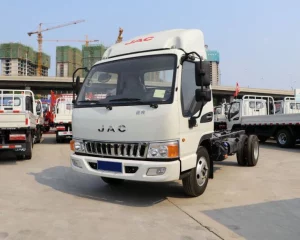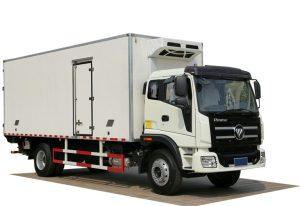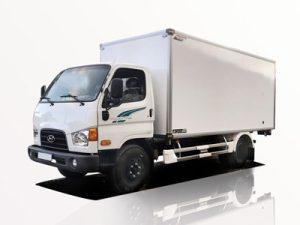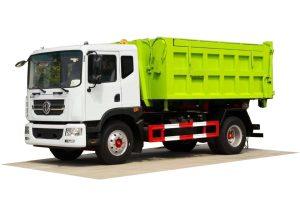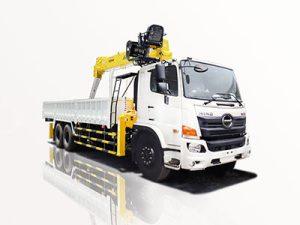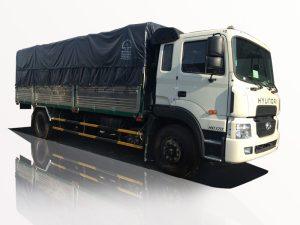Monday to Saturday - 8:00 -17:30
Exploring the Rise of Chinese Electric Trucks: A Comprehensive Overview
The electric vehicle industry is experiencing rapid growth, with electric trucks taking center stage as a sustainable and innovative solution for logistics and transportation. Chinese electric trucks, in particular, are gaining significant traction in the global market. This article delves into the emergence, technology, and impact of Chinese electric trucks while providing practical examples, tips, and insights into this evolving landscape.
Introduction to Chinese Electric Trucks
Electric trucks are revolutionizing the logistics sector, offering eco-friendly alternatives to traditional diesel-powered vehicles. China has emerged as a leader in the electric truck market, driven by stringent government policies aimed at reducing pollution and promoting cleaner transportation options. With advancements in battery technology and charging infrastructure, Chinese manufacturers are poised to become major players in the global electric truck industry.
The Growth of Electric Trucks in China
Market Overview
As of 2023, China has witnessed an exponential growth in the production and adoption of electric trucks. According to industry reports, the electric truck market in China is expected to reach USD 100 billion by 2025. This growth can be attributed to several factors:
- Government incentives for electric vehicle production and consumption.
- Increasing environmental concerns leading to a shift towards sustainable transportation.
- Rapid developments in battery technology and charging infrastructure.
Key Players in the Market
Several key players in China are shaping the electric truck landscape. Below is a table summarizing notable manufacturers:
| Manufacturer | Model | Specifications |
|---|---|---|
| BYD | BYD 8TT | 300 km range, 16 ton payload capacity |
| SAIC | SAIC MAXUS EV80 | 240 km range, cargo van variant available |
| Dongfeng | Dongfeng E70 | 200 km range, various body styles available |
| Geely | Geely Electric Truck | 250 km range, customizable design |
Technological Advancements Fueling Electric Trucks
Battery Technology
Battery technology is a cornerstone of electric truck performance. Chinese manufacturers are investing heavily in research and development to create more efficient and long-lasting batteries. Here are some notable innovations:
- Lithium-Ion Batteries: Most electric trucks utilize advanced lithium-ion batteries, which offer higher energy density and longer lifespans.
- Fast Charging Technologies: New fast-charging solutions are enabling electric trucks to recharge quicker, reducing downtime during operations.
- Battery Swapping:** Some manufacturers are experimenting with battery swapping stations, allowing trucks to exchange depleted batteries for fully charged ones in minutes.
Smart Technologies
The integration of smart technologies is transforming electric trucks into intelligent transportation solutions. Features include:
- Telematics: Real-time tracking and monitoring of vehicle performance and energy consumption.
- Autonomous Driving: Some models are incorporating semi-autonomous features, improving safety and efficiency.
Environmental Benefits of Electric Trucks
Reducing Carbon Footprint
Electric trucks significantly reduce greenhouse gas emissions compared to their diesel counterparts. The shift towards electric vehicles is essential for combating climate change and improving urban air quality. Studies indicate that electric trucks could reduce overall emissions from freight transport by up to 40%.
Noise Pollution Reduction
Electric trucks operate more quietly than traditional combustion engine vehicles, thus lowering noise pollution in urban areas. This benefit improves the quality of life for residents in densely populated regions.
Challenges Facing the Electric Truck Industry
Infrastructure Development
While the demand for electric trucks is increasing, the charging infrastructure is lagging. Reliable and widespread charging stations are critical for supporting electric truck operations, especially for long-haul transportation. Government initiatives and public-private partnerships are essential to accelerate the development of this infrastructure.
Cost Concerns
The initial cost of electric trucks remains higher than diesel alternatives. However, advancements in technology and economies of scale are expected to reduce these costs over time. Additionally, lower operational costs and maintenance expenses can offset the initial investment.
Regulatory Framework Supporting Electric Trucks
Government Initiatives
The Chinese government is implementing various policies to support the growth of electric trucks. These include:
- Subsidies and Tax Breaks: Financial incentives for manufacturers and buyers to promote electric vehicle adoption.
- Environmental Regulations: Stricter emission standards for commercial vehicles to encourage the transition to electric options.
Future Regulations
As the demand for electric trucks grows, additional regulations are expected to emerge to facilitate their adoption and integration into logistics networks.
Practical Tips for Transitioning to Electric Trucks
Assessing Your Needs
Before transitioning to electric trucks, companies should assess their logistics and transport needs. Consider the following questions:
- What is the typical range required for your operations?
- How often can the trucks be recharged?
- What type of cargo do you typically transport?
Exploring Funding Opportunities
Investigate government programs and incentives that may help cover the costs of electric truck purchases and infrastructure development. Engaging with industry groups and networks can provide valuable insights into available funding sources.
Starting Small
Consider beginning with a small fleet of electric trucks. This approach allows companies to test performance and integration with existing systems without overwhelming their operations.
Examples of Successful Implementation
Case Study 1: BYD and the City of Shenzhen
Shenzhen is one of the first cities in the world to convert its entire fleet of buses to electric vehicles, including a range of electric trucks. This transformation has significantly reduced emissions and improved air quality. The city serves as a model for other urban areas aiming to adopt electric vehicles.
Case Study 2: DB Schenker’s Electric Truck Initiative
DB Schenker, a global logistics company, has introduced electric trucks in urban deliveries throughout China. By integrating electric trucks into their fleet, they aim to achieve their sustainability goals while enhancing their service delivery in urban settings.
Frequently Asked Questions (FAQ)
1. What are the main benefits of using Chinese electric trucks?
The main benefits include reduced emissions, lower operating costs, and quieter operations compared to traditional diesel trucks.
2. Are electric trucks suitable for long-haul transportation?
While advancements in battery technology are improving the range of electric trucks, long-haul applications may still require careful planning around charging infrastructure.
3. How can companies finance the transition to electric trucks?
Companies can explore government subsidies, grants, and financing options specifically designed for electric vehicle acquisitions.
4. What charging options are available for electric trucks?
Charging options include home or depot charging stations, fast charging networks, and battery swapping technologies that allow quick recharging.
5. How do electric trucks perform in cold weather?
Electric trucks can face challenges in extreme cold, affecting battery performance. However, new technologies and designs are being developed to mitigate these effects.
6. What is the expected future for the Chinese electric truck market?
The market is expected to grow significantly, driven by technological advancements, supportive government policies, and increasing demand for sustainable logistics solutions.


